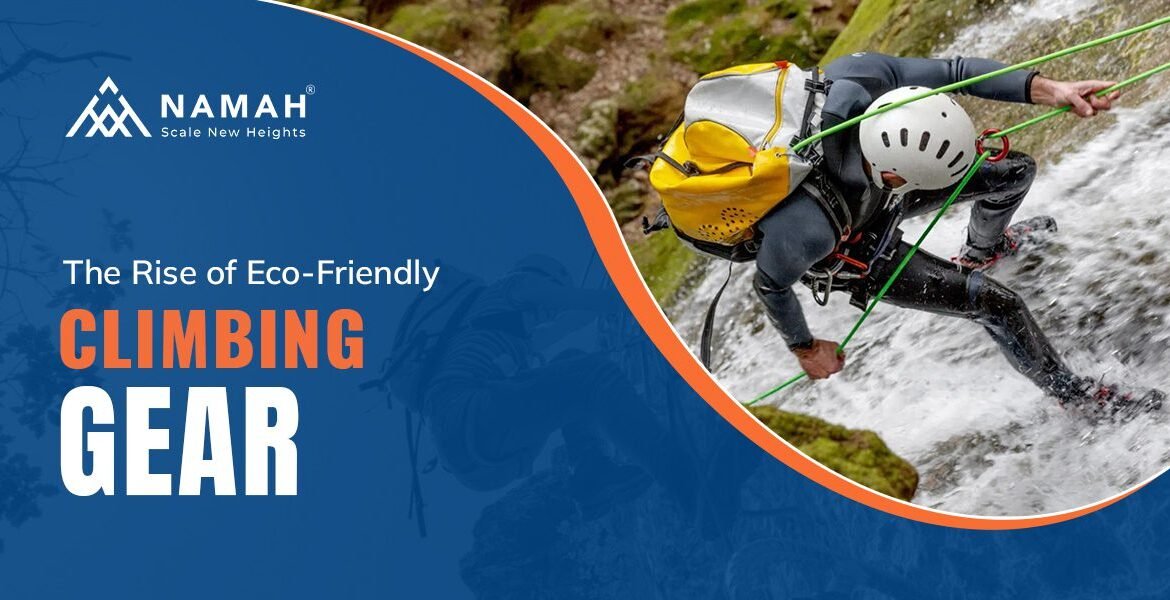Embracing Sustainability in Climbing
As awareness of environmental issues grows, the climbing industry is increasingly turning towards sustainable practices, particularly in the manufacturing of climbing ropes, by integrating eco-friendly materials and processes into their production lines. This shift not only reflects a commitment to environmental stewardship but also meets the climbing community’s demand for products that minimize ecological footprints.
The Impact of Traditional Rope Manufacturing
Traditionally, climbing ropes are made from nylon, a synthetic polymer that, while durable and effective, is petroleum-based and not biodegradable. The production of nylon involves significant energy consumption and emits substantial greenhouse gases. Moreover, the disposal of synthetic ropes poses environmental challenges, as they take decades to decompose in landfills.
Innovations in Recycled Materials
Nowadays, recycled plastics are being used to create eco-friendly climbing ropes. This initiative not only reduces dependency on virgin materials but also helps manage plastic waste effectively. By repurposing single-use plastics into high-quality ropes, the company contributes to a circular economy, ensuring that materials remain in use for as long as possible, thus reducing the environmental impact associated with raw material extraction and processing.
Certification and Eco-labels
To validate their environmental claims, eco-friendly ropes are often subjected to rigorous testing and certification processes. Companies ensure that their green products meet strict standards, such as the Global Recycled Standard (GRS), which certifies products made with recycled materials and covers the entire production chain. These certifications are crucial as they provide transparency and trust, reassuring consumers about the sustainability and quality of their climbing gear.
The Environmental and Economic Benefits of Sustainable Rope Manufacturing
Economic Incentives Behind Eco-Friendly Production
The shift towards sustainable rope manufacturing is not only an environmental necessity but also an economic opportunity. Companies are discovering that eco-friendly production can lead to significant cost savings and open new markets. By using recycled materials, the cost of raw materials is often reduced, as recycled plastics are generally cheaper than virgin nylon. Furthermore, eco-friendly products often command a premium price in the market, appealing to environmentally conscious consumers willing to pay more for sustainable goods.
Reducing Energy Consumption and Waste
The production of ropes from recycled materials requires less energy compared to manufacturing from new plastics. This reduction in energy use significantly lowers the carbon footprint of each rope produced. Additionally, sustainable manufacturing practices focus on reducing waste throughout the production process. By designing products and processes that minimize off-cuts and scrap material, companies can further decrease their environmental impact while also lowering production costs.
Market Response and Consumer Demand
The market response to eco-friendly climbing ropes has been overwhelmingly positive, demonstrating strong consumer demand for sustainable outdoor gear. Climbers, who often have a deep appreciation for nature, are increasingly making purchasing decisions based on environmental impact. This shift in consumer preferences is encouraging more companies to consider sustainability as a core part of their business strategy, not just for ethical reasons but also for maintaining competitive advantage.
Overcoming Challenges in Producing Eco-Friendly Climbing Ropes
Technical Challenges of Using Recycled Materials
Transitioning to sustainable rope manufacturing poses several technical challenges, particularly when replacing traditional nylon with recycled plastics. One of the main hurdles is ensuring that the physical properties of recycled materials meet the stringent safety standards required for climbing ropes. These materials must exhibit adequate tensile strength, durability, and resistance to wear and environmental conditions, which can be variable in recycled inputs.
Ensuring Consistent Quality
The variability in the quality of recycled plastics is a significant concern. Unlike virgin materials that provide uniform performance characteristics, recycled plastics can vary widely depending on their source and previous usage. Companies are investing in advanced sorting and processing technologies to mitigate these issues. By implementing rigorous quality control measures, they ensure that only high-grade recycled materials are used in their production processes.
Innovation in Material Treatment and Blending
To enhance the performance of recycled materials, companies employs innovative treatments and blending techniques. These methods improve the fibers’ properties, such as UV resistance and flexibility, making them suitable for the demands of climbing ropes. By combining different types of recycled plastics or adding performance-enhancing additives, the company can tailor the materials to meet specific performance criteria.
The Future of Sustainable Rope Technology in Outdoor Sports
Expanding the Horizon: Broader Applications and Innovations
As the climbing industry continues to embrace sustainability, the innovations in rope technology are setting a precedent for other outdoor sports equipment. The successful integration of recycled materials into climbing ropes inspires similar advancements in products like harnesses, carabiners, and even camping gear.
Shaping Consumer Behavior and Industry Standards
The shift toward eco-friendly ropes is also influencing consumer behavior and industry standards. As more climbers choose sustainable gear, manufacturers and regulatory bodies are reevaluating their criteria to prioritize environmental impact alongside safety and performance. This trend is paving the way for broader industry-wide changes, where sustainability becomes a key factor in the design and production of all outdoor sports equipment.
The Role of Innovation and Collaboration
Looking ahead, the future of sustainable rope technology will rely heavily on continuous innovation and collaboration between manufacturers, material scientists, and environmentalists. Namah Ropes is committed to staying at the cutting edge of these developments, driving research and development to refine the use of sustainable materials. Partnerships with universities and environmental organizations are crucial in this endeavor, helping to accelerate the adoption of green technologies and practices in the industry.




